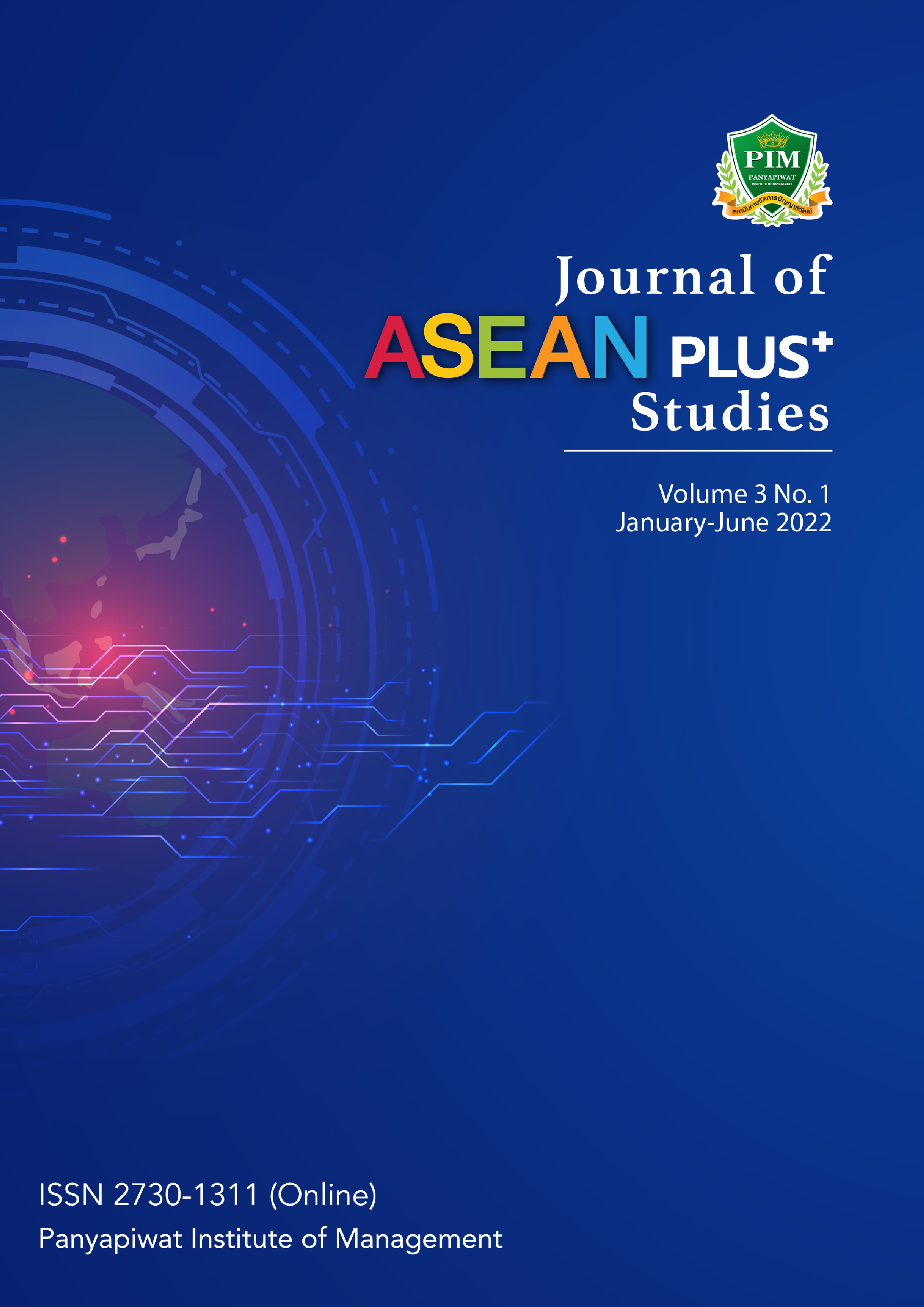Vol. 3 No. 1 (2022): January-June 2022

Foreword
As the Journal of ASEAN PLUS+ Studies celebrates its third anniversary, its position as a platform for publishing academic research with a focus on government policy, business practice, and cultural development in ASEAN and its partners becomes well received by its readers and contributors. The central role of ASEAN in the region for economic recovery, political stability, and inclusive development is one of the contributing factors to a wider readership of the journal.
China ASEAN Studies, PIM (CASPIM) contributes a paper based on its year-long research sponsored by the National Research Council of Thailand (NRCT) and the Knowledge Network Institute of Thailand (KNIT). Not only it touches a timely topic of Thai fruits export to China with challenges of logistic breakdown under Chinese ZCP (Zero Covid Policy), it also makes an academic contribution with the concept of “Supply Chain Integration” (SCI) as the key strategy to achieve a “Demand-Driven Supply Chain” (DDSC), with a 5i framework (information, Initiation, interconnection, inspection, and investment).
From a geostrategic perspective, Kan Yuenyong, a Ph.D. candidate in NIDA and Charoenchai Chaipiboolwong, discusses the concept of ASEAN Centrality evolved since 2011 in various definitions, especially under challenges from the contest of power between the US and China in Indo-Pacific. They conclude that for Thailand, ASEAN Centrality will be impelled toward a more unified ASEAN similar to the platform of the European Union.
Wilaipan Jaiwilai of NIDA and Wipada Kunaviktikul, a Professor & Vice President in Health Science Affairs of PIM, investigate the decline in wellness tourists caused by the COVID-19 pandemic to determine the most effective strategy and best practices to re-start the industry once the pandemic subsides. They use Thailand as a case study because of the country’s strong potential and its effort to rebrand the country from a low-cost to a high-value destination.
With a quantitative approach, Chanatip Suksai tests how logistics performance could influence the trade flows between Thailand and China. The Thai government is advised to enhance the logistics performance with improvements in physical infrastructure, shipment process, and customs procedures to accommodate the increasing demand for international trade.
In retailing business, Akaraphun Ratasuk discusses the contributions of product quality, service quality, store ambiance, and promotion on customer loyalty, mediated by brand identity with the data of convenience store coffee chains in Bangkok, while Li Zhi and Apirada Chinprateep reveal “New Retail” is the business model positively enhances customer value, based on the investigation on customers of a supermarket in China
Prof. Dr. Tang Zhimin
Editor-in-Chief





